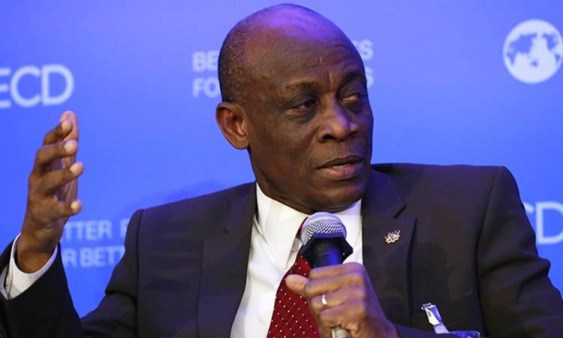
Don’t make public sector focus of employment - Seth Terkper
A former Minister of Finance, Mr Seth Terkper, has called for a shift from making the public sector the focus of employment in the country.
He said there was the need for diversification of employment opportunities in the country and to bring in the private sector.
“If you fix roads and construct schools, you create employment and you also take those facilities closer to the people. You open the market up if the roads are good. You can say that there are certain government payments such as the Ghana School Feeding programme and the rest; they also create jobs. But I think this is something the we need to think about as a nation,” he said during a virtual media briefing on ‘Missed Q1 targets and expectations for mid-year review’ organised by PFM Tax Africa.
Touching on public sector staffing and its impact on the economy, he said the more people were employed in the sector the more the sector’s wages went up.
“If we recruit a lot more than the capacity of the civil service, remember you are squeezing out and yes, it is positive and it is good. Previously every young person knew the essence of public sector employment but today you can even see that professionals are looking for employment so we should diversify opportunities,” he said.
Read: Private, public sectors must collaborate for self-reliant economy - Speakers
Exemptions and reliefs
He said there was probably about 70 per cent reliefs and exemptions, which were inevitable.
He cited if government was to pay VAT on all the materials that went into construction and the foreign loan would not pay for it, the Ghana Revenue Authority (GRA) would make more money but it will go out as expenditure by the Ministry of Roads and the rest and it will not have any effect on the budget.
“The only benefit there is that because they are paying upfront, they will be a bit more careful and evasion and avoidance will go down,” he said.
Read:Unemployment could trigger extremism — NCCE study
Again, Mr Terkper said some reliefs were inevitable such as on low incomes, textbooks, among others, as they alleviated the burden on students, parents and guardians.
“That is also social intervention, which is a very important element. So, when we take these things out there is a proportion of reliefs and exemptions which all governments have attempted to pay. I hope that Parliament will finally come out with the bill. Expectation is so high and we need to do some education on it because it may be disappointing to many for the bill to come out and to say that its only 35 per cent to 40 per cent of reliefs and exemptions that can be ploughed back,” he said.
Read: A-G seeks support to implement accrual accounting reporting in public sector
Revenue target
According to Mr Terkper, it could be a challenge for the government to achieve its revenue target for the year.
“We have six months ahead of us and anything can happen. I’m also not saying categorically that government will miss its target at the end of the year. I’m only saying that it is going to be missing the target; especially if we miss it in quarter two (Q2) it is going to be a challenge,” he stated.
He said as far as the fiscal was concerned, there would be rigidity with a borrowing impact.
“So, if the government is not raising revenue and is in the domestic market and the external market is becoming difficult, then it will have to raise interest rate and that will affect business and that will affect cost. There is a fiscal element that is usually a cost push,” he said.
Stagnant revenue
Speaking on stagnant revenue against expansion in spending, he explained that growth in tax and non-tax revenues had stalled because of rebasing, declining grants (and concessional financing), and difficulty in using the increase in oil production to raise non-oil growth in the economy.
He said contrary to official and popular view, the fiscal deterioration started early in 2017, long before COVID-19.
“Disguised expenditure and arrears need financing, so major adjustment made to 2020 Budget: deficit (13 per cent of more) and debt (about 80 per cent). Key adjustments were mainstream; wages, interest, arrears (routine and bailout) sluggish amortisation which is leading to a fast growth in interest rate,” he said.